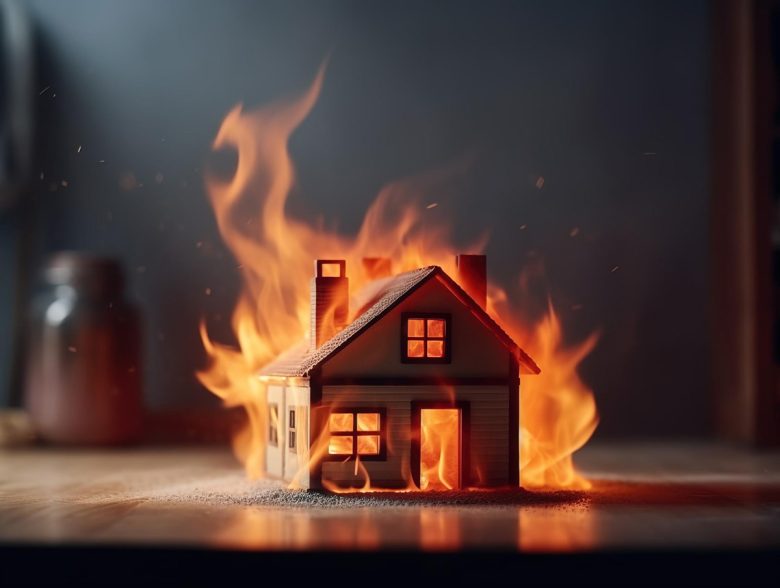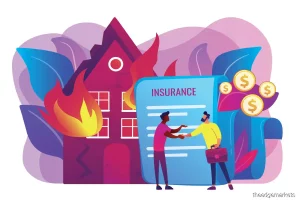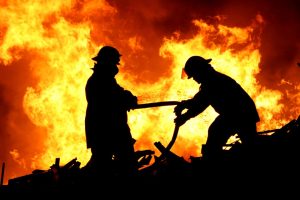Fire insurance is an important safety measure because it protects you financially against the devastating consequences of a fire. However, for these protections to work, you must be fully aware of the applicable laws. This detailed guide examines common legal issues in fire insurance and provides customers with advice on how to deal with these issues to obtain comprehensive coverage and peace of mind.
Inadequate Understanding of Policy:
Why Assessment Policies are Important
Legal problems often arise because people do not fully understand their insurance policies. Policyholders may miss important terms, limitations, and clauses, which can lead to gaps in coverage. It is important to review the policy regularly with an attorney to ensure it is clear and meets everyone’s needs.
Request More Information
If the policy wording is unclear, policyholders should not be afraid to ask for more information. It’s important to understand the details of coverage so you can make informed choices and avoid hassles during the claims process.
The Risk of Insufficient Coverage:
Correct Rating
If you do not take the value of your land and possessions into account, you may not be adequately insured. It is important to make an accurate estimate that takes into account the current value of the property and the cost of replacing it. Coverage limits are regularly reviewed and updated to ensure they provide adequate protection against potential losses.
Talk to an Expert
By having a professional view the home and provide advice, customers can determine the correct amount of insurance. Seeking advice from a professional can ensure that the insurance policy is consistent with the current value of the asset and the likely costs of reconstruction.
Non-Disclosure of Material Information:
Obligation to make Full Disclosure of
When people buy insurance, they should be honest about everything that is important to the insurance company. This is called the ‘duty of utmost good faith’. If you do not provide accurate and complete information during the application process, you could lose your coverage and get into legal trouble.
Update if Necessary
It is important to immediately notify the insurance company of any changes in the way the property is used, repaired or purchased. Regular updates keep things open and support the duty of good faith, eliminating disagreements due to non-disclosure.
Ignore Local Building Codes:
Changes in Building Regulations:
Local building codes change over time, and coverage issues can arise if you don’t follow them. Those with policies should be aware of the code changes and ensure their homes comply with the new rules. Coverage is better when values are updated to meet code requirements.
Transformation Steps
Compliance with building regulations should be considered as part of a regular property assessment. Adjustments may be necessary to accommodate changes in legislation and regulations. This makes it easier to file a claim.
Unplanned Maintenance:
Responsibilities for Property Maintenance
Many insurance plans include provisions that require policyholders to properly care for their property. Failure to perform regular maintenance, such as fixing things that need repairing and eliminating fire risks, can reduce the effectiveness of your insurance if you need to make a claim.
Check and Record
A proactive approach includes regular inspections of the property and keeping track of maintenance work. If there is a claim, being able to demonstrate that the property has been properly cared for over time can strengthen the policyholder’s claim and reduce the likelihood of legal problems.
Insufficient Evidence After Loss:
Submit on Time
It is important to keep accurate records as soon as possible after a fire. Policyholders must keep detailed records of all damages, losses, and costs. These documents form the basis of the claims process and help minimize disagreements over the severity of the loss.
Professional Help
By seeking the help of an expert, such as a public adjuster or a claims adjuster, you can ensure that the documentation you submit meets the standards required for the claims process. By being professional, you increase your chances of a fair and quick claim settlement.
Too Late to Report Damage:
Reporting Obligation
Most insurance policies require you to report the damage immediately. When reporting is delayed, claims may be denied. Understanding and complying with notice requirements is important to protect policyholder rights and avoid unnecessary legal trouble.
Legal Implications
If you take too long to report a claim, it may be considered a breach of your insurance contract. This can lead to disagreements, slower claim processing, and even reduced coverage. Timely reporting is a very important part of keeping your claim honest.
Handling the Problem:
Meeting with the Independent Damage Expert
People with insurance policies can hire an independent assessor to represent their interests during the claims process. To ensure that you receive fair and equal compensation, you can avoid making mistakes, such as settling for an inadequate settlement, by seeking professional help.
Disputes Regarding Rejection of a Claim
Policyholders should be aware that they can appeal if a claim is denied. If your claim is denied, you may have to go to court to achieve a fair resolution.
Not Consulting a Lawyer:
Why Legal Advice is Important
Many clients do not realize how helpful talking to an attorney can be about fire insurance issues. An insurance specialist can help you understand your policy, resolve your differences, and ensure you’re in compliance with the law.
Actively Participate in the Law
Policyholders benefit from proactive legal involvement rather than just getting legal help when they are in trouble. Regular meetings can help people identify potential problems in advance and develop plans for managing risks effectively.
Staying Informed is the Key to Getting around the Law:
Advanced Teacher Training
It is important to be aware of any changes in fire insurance laws, regulations, and business standards. Continuing education allows policyholders to make informed choices and change their coverage as legislation changes.
Conduct Regular Policy Evaluations
Review your insurance plan regularly with an attorney to ensure it meets legal requirements. Regular assessments help uncover potential vulnerabilities so that changes can be implemented quickly and risks can be managed proactively.
Conclusion:
To avoid common legal pitfalls with fire insurance, you must be proactive and well informed. Policyholders must play an active role in understanding policies, complying with the law, and strategically managing risks. If policyholders address potential issues before they become legal issues, they can be fully insured and navigate the complex legal system with peace of mind.
FAQs:
1. Why is it important to regularly review and understand your fire insurance policy?
Regular policy reviews ensure a full understanding of coverage, exclusions, and conditions. This proactive approach can help policyholders avoid potential legal pitfalls by addressing any gaps in coverage or unclear policy language.
2. How can I determine the correct value of a property to avoid the risk of underinsurance?
An accurate property valuation takes into account factors such as the property’s valuation and replacement costs. Seeking a professional evaluation and hiring an expert can help determine the appropriate level of coverage and reduce the risk of underinsurance.
3. What obligations do I have with regard to the duty of good faith in a fire insurance contract?
The duty of utmost good faith requires policyholders to provide accurate and complete information during the insurance application process. Regular updates on changes in use or renovations of a property are crucial to complying with this obligation and avoiding legal disputes.
4. How do I ensure my property complies with local building codes, and why is compliance important?
Staying abreast of local changes to building regulations and retrofit measures will ensure compliance. Non-compliance can lead to coverage issues, so policyholders must meet regulatory standards and improve the effectiveness of coverage.
5. What steps should I take to document damage and losses after a fire incident?
After a loss occurs, timely and thorough documentation is critical. Policyholders must carefully record damage, losses, and costs. Enlisting professional help, such as a public adjuster, can improve the quality of your documentation and streamline the claims process.



